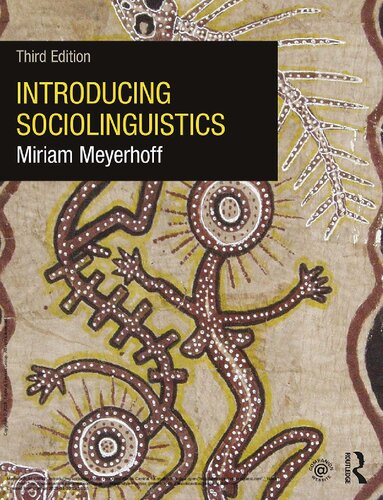

Most ebook files are in PDF format, so you can easily read them using various software such as Foxit Reader or directly on the Google Chrome browser.
Some ebook files are released by publishers in other formats such as .awz, .mobi, .epub, .fb2, etc. You may need to install specific software to read these formats on mobile/PC, such as Calibre.
Please read the tutorial at this link: https://ebookbell.com/faq
We offer FREE conversion to the popular formats you request; however, this may take some time. Therefore, right after payment, please email us, and we will try to provide the service as quickly as possible.
For some exceptional file formats or broken links (if any), please refrain from opening any disputes. Instead, email us first, and we will try to assist within a maximum of 6 hours.
EbookBell Team

4.4
52 reviewsThis third edition of Miriam Meyerhoff’s highly successful textbook provides a solid, up-to-date appreciation of the interdisciplinary nature of the field and covers foundation issues, recent advances and current debates. It presents familiar or classic data in new ways, and supplements the familiar with fresh examples from a wide range of languages and social settings. It clearly explains the patterns and systems that underlie language variation in use, as well as the ways in which alternations between different language varieties index personal style, social power and national identity.
New features of the third edition:
Chapters include exercises that enable readers to engage critically with the text, break-out boxes making connections between sociolinguistics and linguistic or social theory, and brief, lively add-ons guaranteed to make the book a memorable and enjoyable read. With a full glossary of terms and suggestions for further reading, this text gives students all the tools they need for an excellent command of sociolinguistics. It can also be used in conjunction with The Routledge Sociolinguistics Reader, DoingSociolinguistics and the online resources shared by all three books.